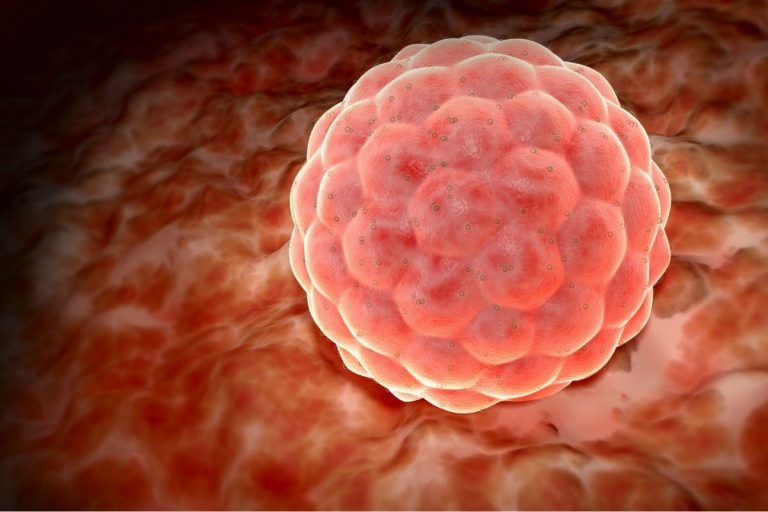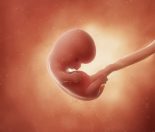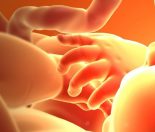In association with professional midwife experts at birthEd, find out everything you need to know about pregnancy at 3 weeks, including how your baby is growing, changes to expect in your body and pregnancy health, nutrition and wellness advice.
| Week 2 |
Week 4 |
3 Weeks Pregnant – Your baby, your body & you
Congratulations – you’re pregnant and it’s very likely that you don’t even know it yet!
The first week of pregnancy isn’t measured from the date you conceive but from the first day of your last period. The reason for this is that it can be very difficult to determine when a woman ovulated and conceived. Most women are pregnant on average for 280 days and we count from the last menstrual period (LMP) which gives a standard for all health care professionals to follow.
The three phases (called Trimesters) of pregnancy
1st Trimester is 1 – 12 weeks: Your ‘non-visible’ pregnancy – a time of huge change both hormonally and physically. Your emotions are often mixed or heightened and you feel tired and sometimes feel or are sick
2nd Trimester is 13 – 28 weeks: Your ‘more visible pregnancy with the ‘glow of pregnancy’ – often a time of new found energy; a possible decrease in nausea; feeling the first flutters and movements of your baby.
3rd Trimester is 29 – 42 weeks: Your ‘very visible’ pregnancy – getting ready for your baby to arrive; slowing down with an increase in pregnancy symptoms; nesting and excitement.
Your Baby
The embryonic period is from week 3 until week 8.
It’s hard to believe that the cluster of cells called the embryo is now about the size of a pinhead and is fast becoming a foetus.
Let’s rewind to that magical moment of fertilisation and the beginning of your tiny miracle. When the sperm entered the egg, the nuclei of each cell were attracted to each other and the genetic material (chromosomes) from you and your partner fused together to form a new cell called a zygote – your baby. A unique little person was made and your baby’s gender and inherited characteristics like their eye and hair colour, height, face and body shape were decided.
Your baby – the zygote, started to divide into two cells 30 hours after fertilisation and further cell division happened every 12-24 hours. By day 3 there were 12-15 blastomeres which formed a solid structure that looked a little like a mulberry and this is called a morula. The Morula travelled down the fallopian tube and continued to divide. It made its way to the uterus and floated around for a further 2 days, (at about day 6 following fertilisation).
This developing clump of cells is called a blastocyst and it attaches to the lining of your uterine wall and begins to implant. The implanted embryo begins to release hormones (HcG – human chorionic gonadotrophin), which prevents menstruation from occurring – let’s talk more about the importance of this hormone next week.
Your Body
From the outside it may seem as if everything is as it was but if you had sex before or during the time you ovulated and the sperm met the egg – a miracle happened!
Preparing for Baby
Toxoplasmosis is an infection that is caused by a common protozoan parasite called Toxoplasma gondii and can be contracted through eating undercooked contaminated meat, unwashed fruit and vegetables, contaminated cat faeces.
If you become infected for the first time just before you get pregnant or in early pregnancy your baby is at risk of having congenital toxoplasmosis and the pregnancy may end in miscarriage or still birth. Babies who survive are likely to have serious problems such as an enlarged liver or spleen, jaundice, seizures, mental disabilities, hearing loss and blindness.
Do
- Wear gloves when you garden or handle soil
- Wash all fruit and vegetables
- Wash kitchen knives properly after cutting meat
- Avoid petting stray cats or kittens
- Have someone change your cat’s litter box
Don’t
- Eat raw or undercooked meat, especially lamb, pork or beef
- Eat anything that is unpasteurized
Rubella, also known as German Measles, is an infection caused by the rubella virus. This infection is usually self-limiting with mild symptoms or even no symptoms in most people, however if a pregnant woman contracts rubella in her first trimester, it can be fatal to her unborn child or be born with congenital rubella syndrome.
This syndrome can cause multiple problems including:
- Congenital heart defects
- Defects in other organs
- Growth retardation
- Intellectual disabilities
- Deafness
- Cataracts
Do
- Have a blood test to find out whether you are immune and protected from Rubella
- Get immunised if you aren’t immune and it is recommended that you delay making a baby for at least a month. You can not get immunised if you are already pregnant.
- Avoid children with a rash or adults who have flu-like symptoms
You
Keep up or start a routine of physical exercise. While getting your heart pumping and your blood flowing feels so good it’s so important to listen to your body. What is it telling you today? This may even change hour to hour. Respect what your body is asking. If this looks like a 10 minute walk in the fresh air then trust that this is exactly what is needed right now.
Your Relationships
Are you going for that walk? Call up a girlfriend, take her with you. Spending time with a friend is important and it’s likely that you’ll appreciate having her friendship while you’re on this journey. Foster and grow your friendship – don’t forget that friendship needs time, routine and ritual. Schedule a friend date this week.
This Week’s Preparation
Track your cycle and body. You could buy a thermometer and an ovulation kit
Don’t drink alcohol from the moment you know you are pregnant (see Week 2 for the risks)
Stop smoking, vaping, drinking and using drugs - Visit Quitline to find out about these services
Continue taking a prenatal vitamin and additional folic acid if there isn’t 800mg in your vitamin
Cut back on your caffeine intake
Increase your consumption of fruit and vegetables and cut back sugar and fat
Check what is safe to eat and what you should avoid while pregnant at Food Safety
Get your Rubella immunity checked
Wash hands after contact with a cat or other animals
Move your body and exercise each day
Schedule a friend date this week
Back to 52 Weeks of pregnancy.







